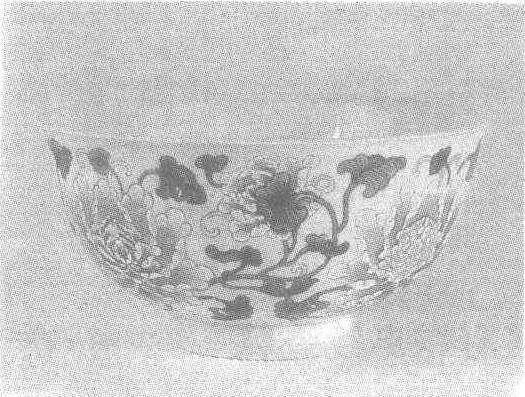“康熙御制”黄地珐琅彩花卉纹瓷碗
清。高7.6厘米,口径15.6厘米。北京中国历史博物馆藏。此碗撇口,弧形腹。胎体轻薄。碗内施白釉,釉面坚致莹润;碗外壁施黄釉,以蓝、绿、红等珐琅彩绘缠枝牡丹。这些色彩不同的牡丹花在艳丽的黄色衬托下显得格外娇艳。底有楷书“康熙御制”四字款。珐琅彩见“‘康熙御制’珐琅彩花卉纹瓷瓶”条目。

| 词条 | “康熙御制”黄地珐琅彩花卉纹瓷碗 |
| 类别 | 中文百科知识 |
| 释义 | “康熙御制”黄地珐琅彩花卉纹瓷碗清。高7.6厘米,口径15.6厘米。北京中国历史博物馆藏。此碗撇口,弧形腹。胎体轻薄。碗内施白釉,釉面坚致莹润;碗外壁施黄釉,以蓝、绿、红等珐琅彩绘缠枝牡丹。这些色彩不同的牡丹花在艳丽的黄色衬托下显得格外娇艳。底有楷书“康熙御制”四字款。珐琅彩见“‘康熙御制’珐琅彩花卉纹瓷瓶”条目。
|
| 随便看 |
开放百科全书收录579518条英语、德语、日语等多语种百科知识,基本涵盖了大多数领域的百科知识,是一部内容自由、开放的电子版国际百科全书。